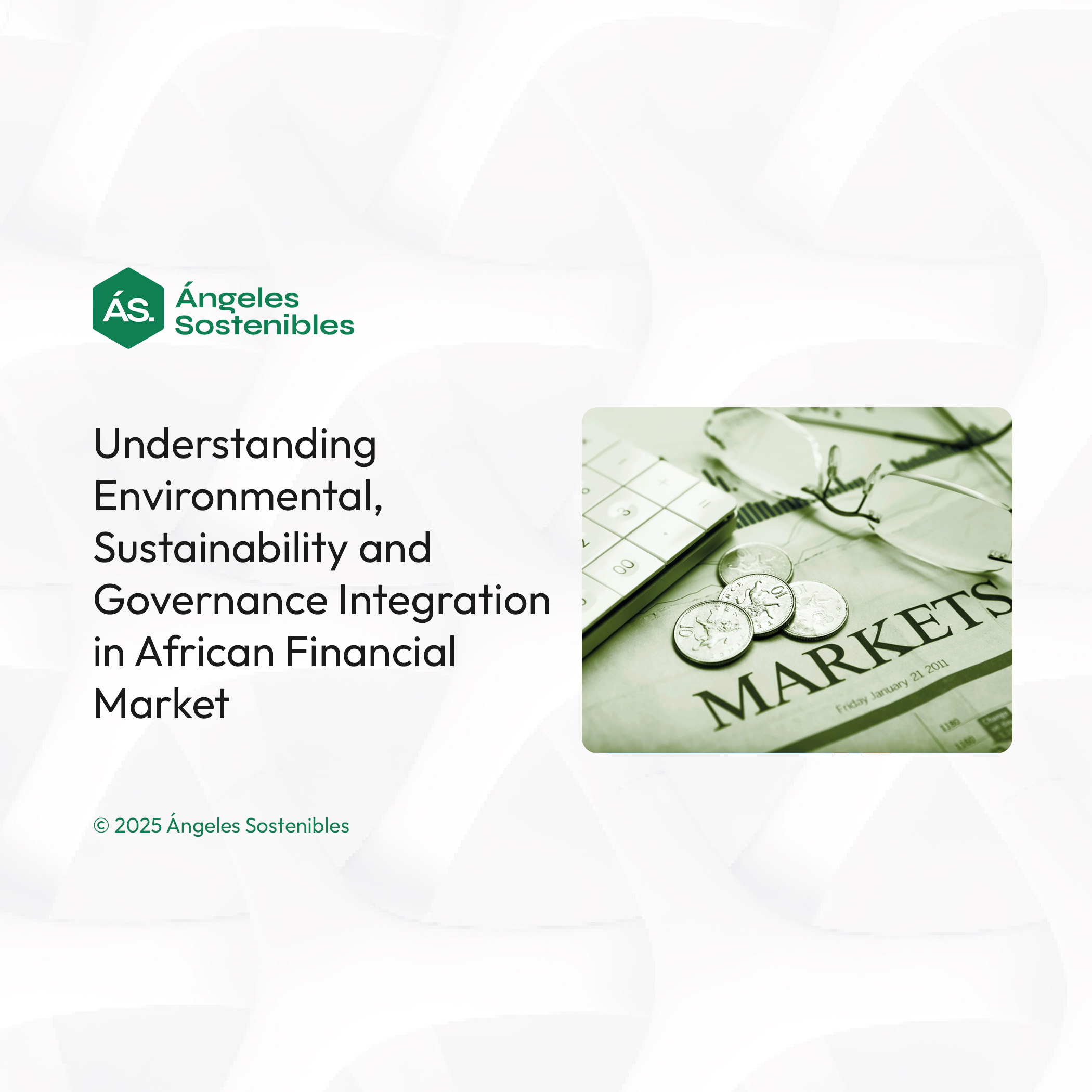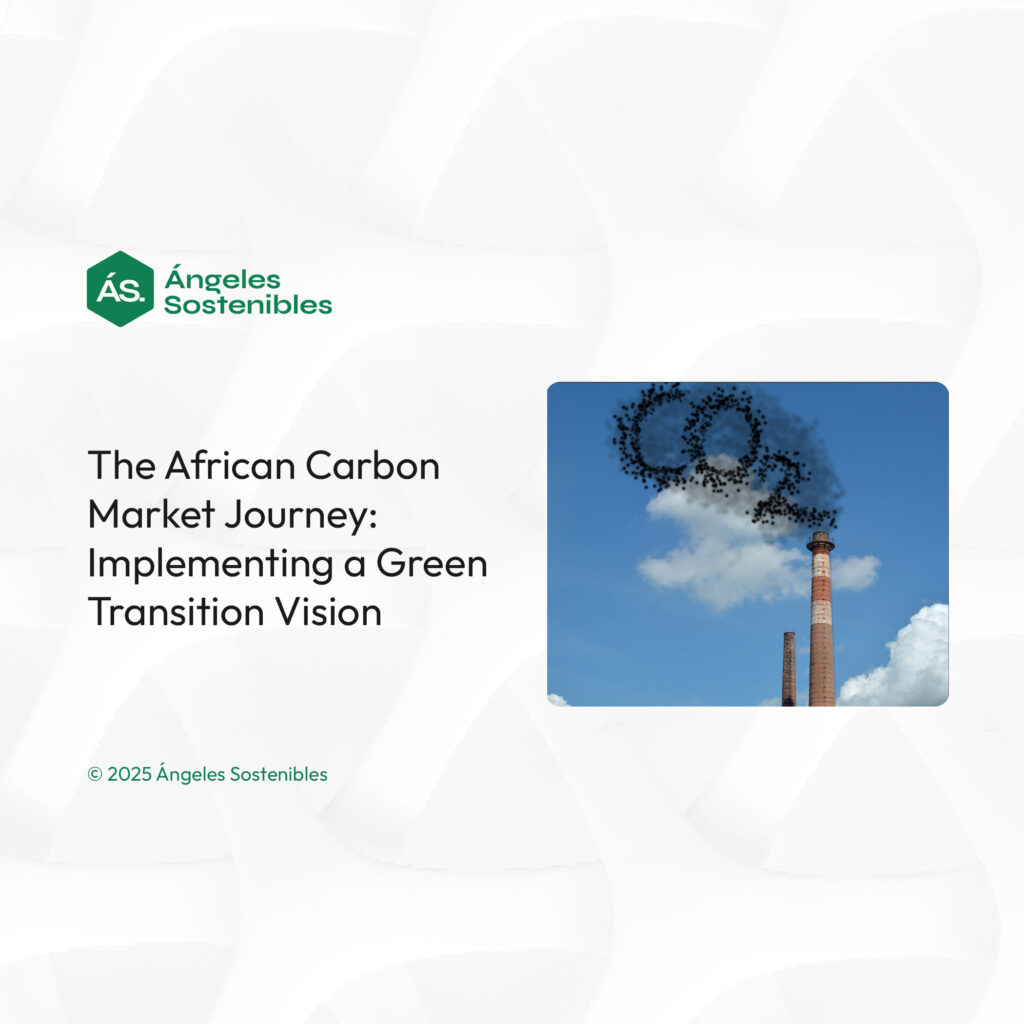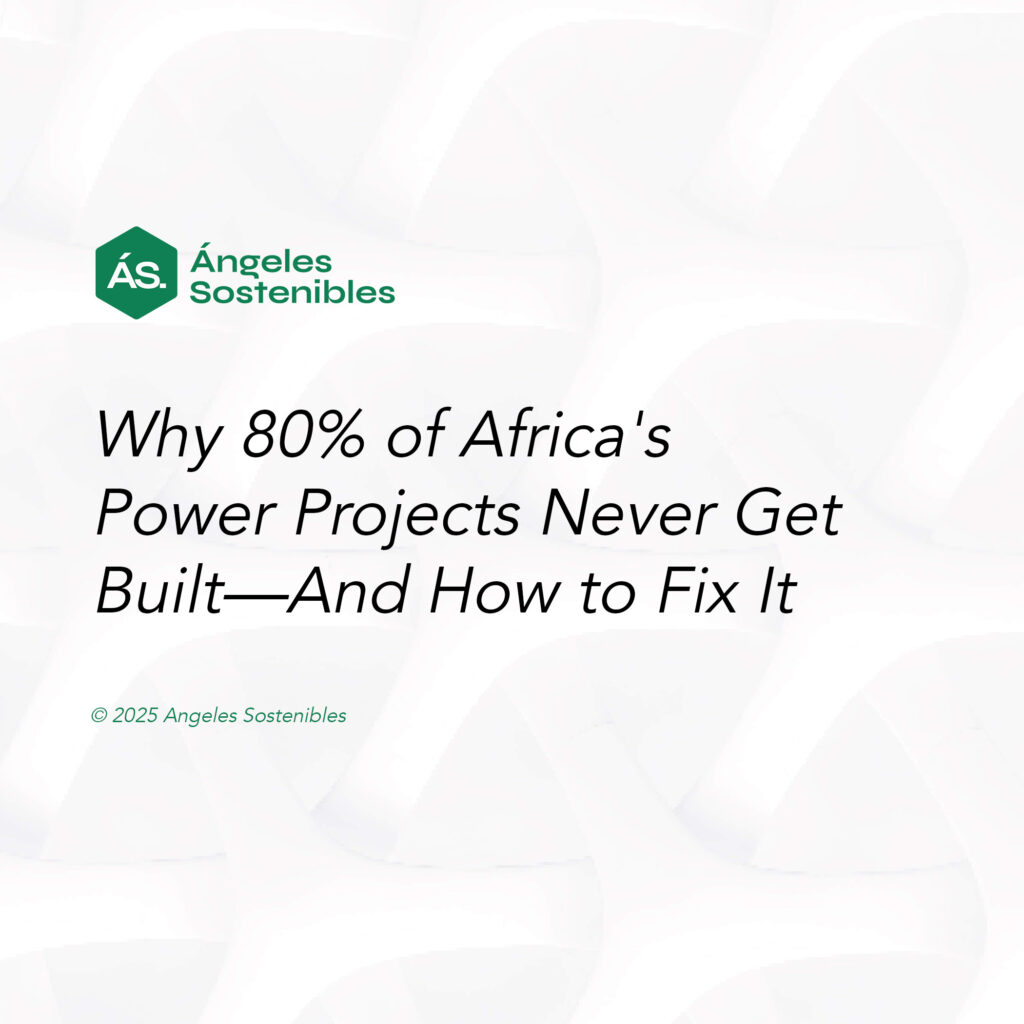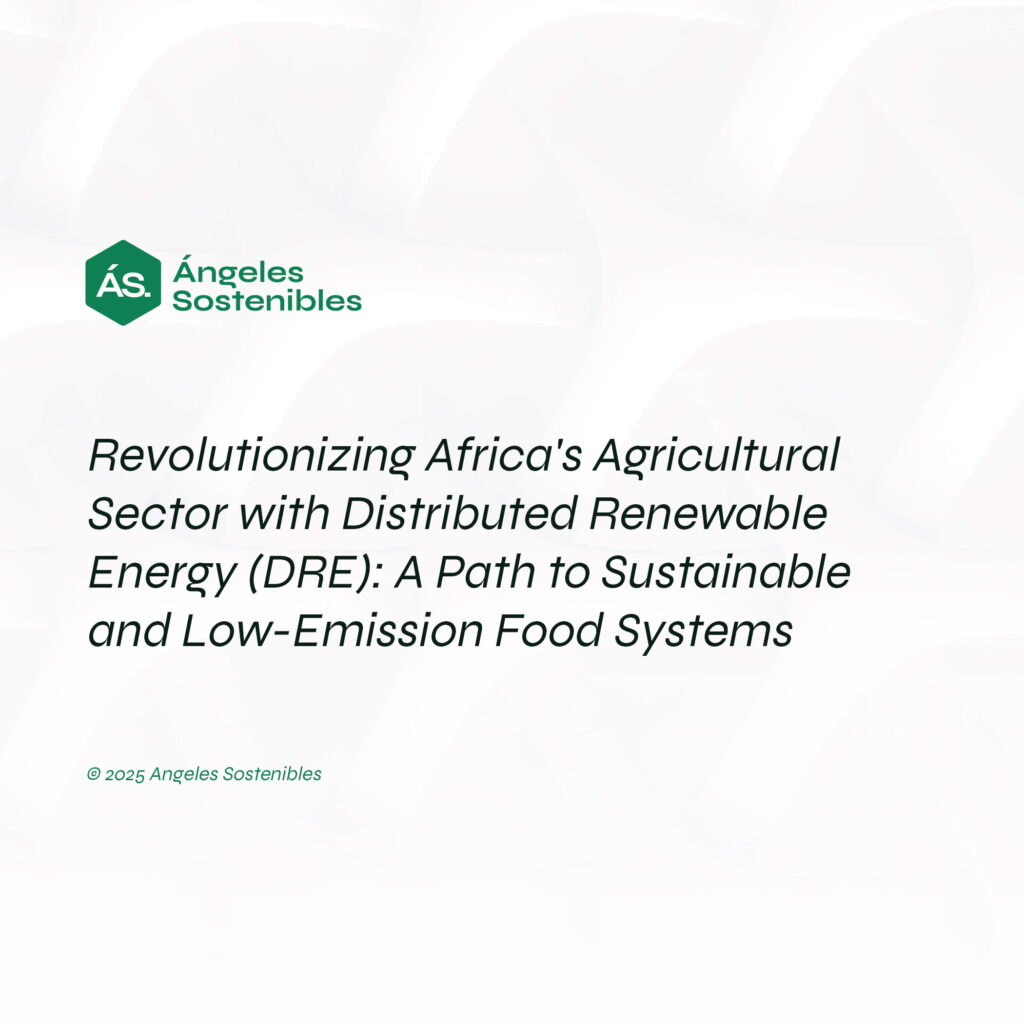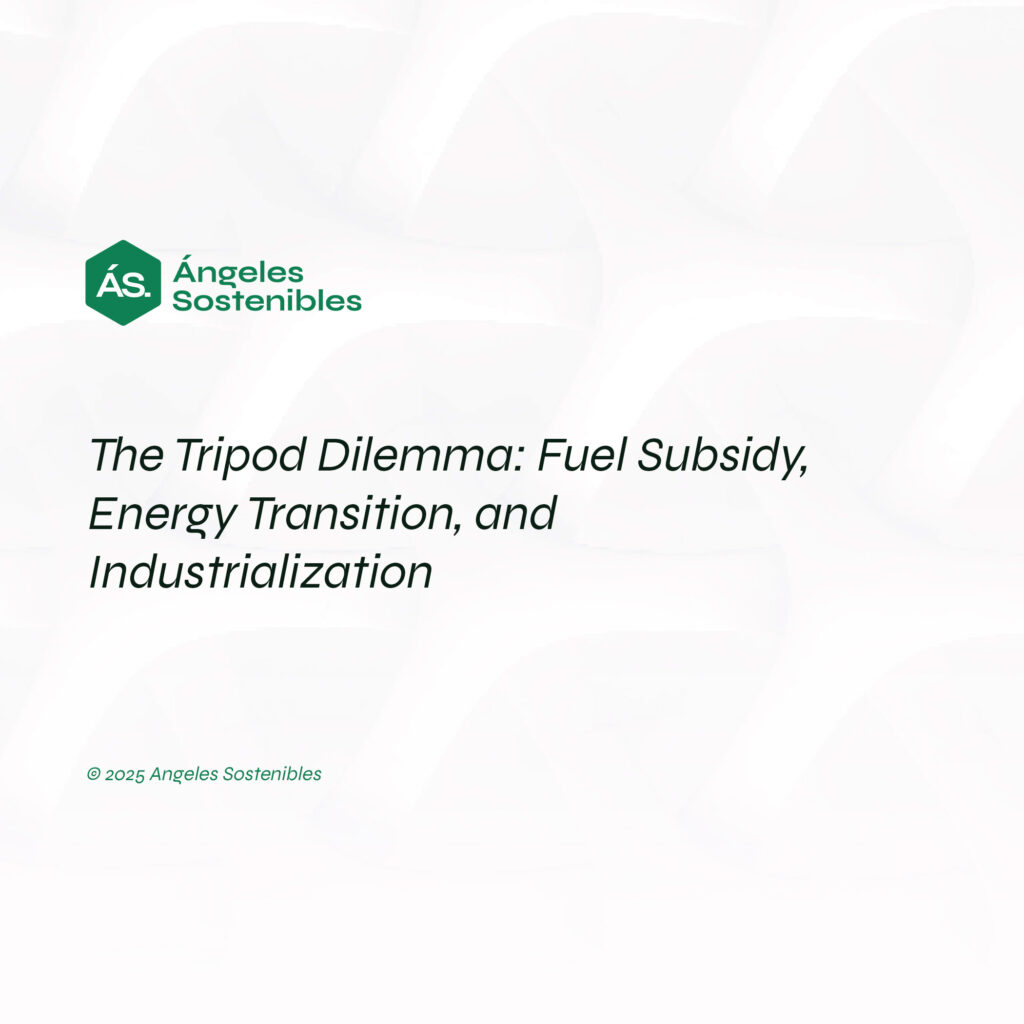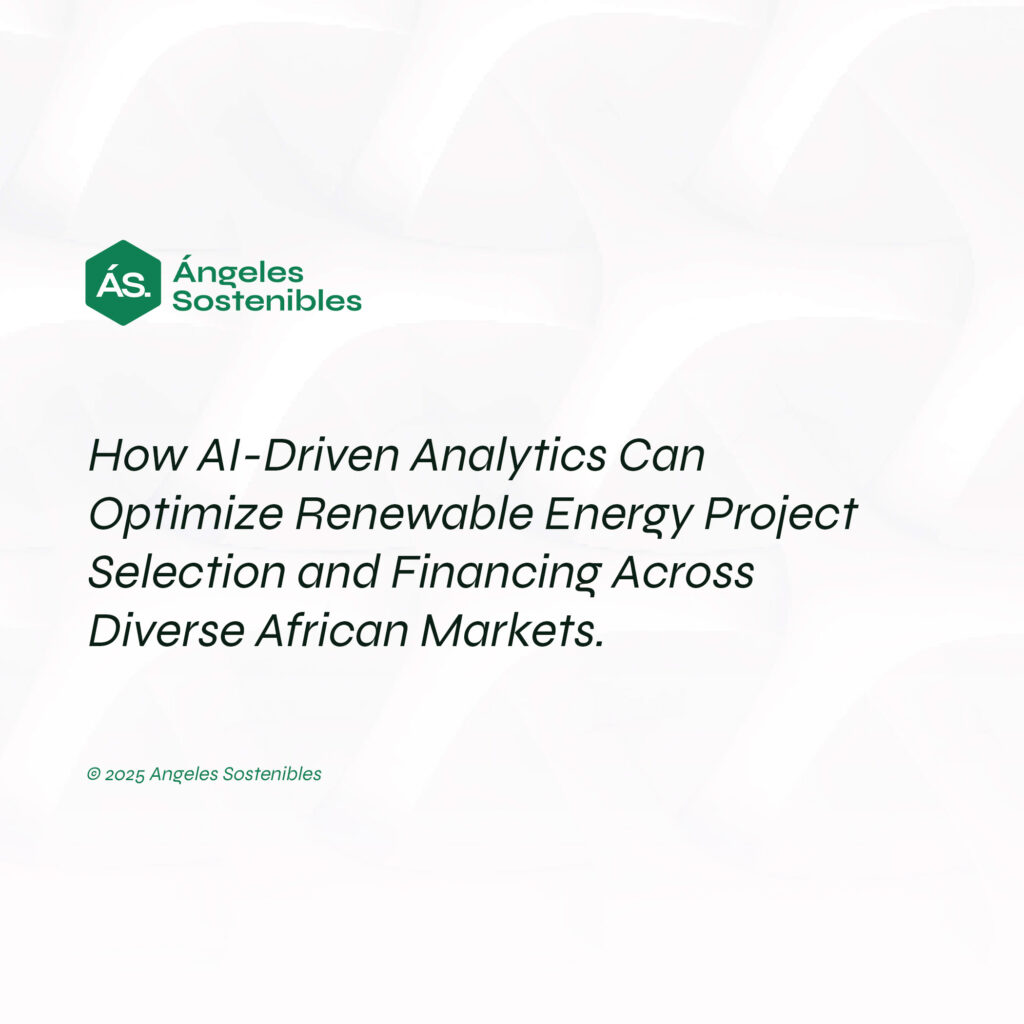Introduction
Integrating Environmental, Social, and Governance (ESG) principles is rapidly reshaping financial markets worldwide, and Africa is no exception. As global investors increasingly seek sustainable and responsible investment opportunities, African financial markets are responding by embedding ESG frameworks into their operations, policies, and investment practices. This paper explores the growing relevance of ESG in African financial systems, highlighting key factors behind this shift, the current landscape across key markets, the challenges that persist, and the opportunities ahead. It further highlights pioneer initiatives in South Africa, Nigeria, Kenya, Egypt, and Morocco, demonstrating how ESG considerations are shifting from optional extras to core components of market infrastructure and investment decision-making.
It further highlights how African countries’ governments are making efforts through Regulatory reforms, such as South Africa’s Regulation 28, Nigeria’s Sustainable Finance Roadmap, and Kenya’s green bond initiatives. All these regulatory reforms have been instrumental in setting new expectations for corporate behaviour and investor strategies. The Paper also highlights the Development finance institutions and global asset managers’ role in accelerating the adoption of ESG frameworks across the continent.
It concludes by discussing the significant barriers, such as gaps in reliable ESG data, inconsistent disclosure standards, shortage of ESG expertise, and greenwashing risks, which hinder effective progress. Political instability and fragmented regulatory approaches add further complexity. Despite these challenges, ESG integration presents a powerful opportunity for African financial markets to differentiate themselves globally. By investing in ESG data infrastructure, harmonising regulatory frameworks, building local capacity, and fostering innovation in sustainable financial products, African markets can attract a new wave of investment capital, enhance risk management, and support longterm economic resilience.

SETTING THE SCENE: ESG GOES MAINSTREAM IN AFRICA
In recent years, ESG has shifted from being a mere policy consideration to becoming core of several financial activities globally. In 2024, the global ESG investing market was projected to reach $28,360,000,000,000 (Twenty-Eight Trillion, Three Hundred and Sixty Billion United States Dollars). This projection was fueled by increasing demand for ESG-compIiant products and services, stricter regulatory mandates and greater stakeholder efforts. Africa also played a huge role in this, with 71% of countries in 2024 participating in the African Financial Markets Initiative (“AFMI”) listing ESG assets as against the 57% in 2021. This signifies a significant increase in ESG integration across the continent, although slow compared to other global players. While there remain certain gaps in standardisation, disclosure and capacity, the progress of regions varies, as some jurisdictions have significant progress in embedding ESG into market structures.
In Southern Africa, the Johannesburg Stock Exchange (“JSE”) launched a pioneering initiative, becoming the first emerging market exchange to feature a sustainability index as far back as 2004[1]. It further issued its own Sustainability and Climate Disclosure Guidance in 2022 to aid Issuers in meeting global standards such as Global Reporting Initiative (“GRI”). On the other hand, it was not until 2021 that the Nairobi Securities Exchange (“NSE”) launched its ESG Disclosure Guidelines 2021, providing a framework for listed companies to report on ESG matters.

In response to the several Guidelines issued, financial players across the continent have moved from ESG awareness to ESG integration. For example, Nedbank in South Africa and Access Bank in Nigeria have embedded ESG considerations into their credit policies, lending practices and corporate governance framework. Also, Nedbank annually publishes a sustainability report aligned with international frameworks, while Access Bank is part of the Nigerian Sustainable Banking Principles (“NSBP”). In further facilitating this integration, Multilateral Development Institutions, such as the International Finance Corporation (“IFC”), African Development Bank (“AfDB”), and UNEP Finance Initiative (UNEP Fl) have supported African countries’ governments with ESG resources, funding for green infrastructure, capacity-building programs and inclusive finance.
FACTORS RESPONSIBLE FOR IMPROVED ESG POLICIES ACROSS AFRICA
The growing importance of ESG integration in African markets is attributed to factors such as the growing investor appetite, regulatory reform, the continent’s high exposure to climate risk and the rise of innovative sustainable finance products. These factors have collaboratively shifted ESG considerations from optional to mandatory in the strategies utilised by players in African markets.
- Investor Appetite for Sustainable Assets
The forces of demand and supply is displayed with increased demand of global and regional investors for existing African assets and opportunities to meet ESG standards, achieving both ethical investment considerations and as a practical tool for derisking these investments. With Institutional investors placing strict ESG benchmarks for capital deployment, this has influenced the considerations which are at play in most financial transactions like private equity deals, public listings and sovereign debt ratings. In response to this, financial players are put under some sort of pressure to align with the preferences of such investors. For instance, in 2023, over 70% of African-focused private equity firms reported incorporating ESG criteria during due diligence and portfolio monitoring.

- Regulatory Reforms: ESG compliance becoming mandatory
In achieving ESG integration, both individual African countries and pan-african efforts have been underscored in several regulatory reforms engineered by African governments. On the pan-African level, the African Union Commission and African Securities Exchanges Association (“ASEA”) are exploring continental ESG reporting alignment, as pressure increases to harmonize policies and avoid greenwashing. Also, the AfDB launched a new Sustainable Bond Program, which combines and updates the Green Bond Program and Social Bond Program. The program is aimed at facilitating the Bank’s strategic priorities in aiding its member countries in transitioning to green growth[l]. The increase in regulatory reforms has resulted in both increased transparency and an improved enabling environment for green capital flows, climate-smart infrastructure and foreign direct investments.
- Rise of Sustainable Financial Products
Africa remains home to many emerging markets, and in achieving global standards and raising sustainability-linked capital for projects, these markets are receptive to utilizing ESG-labelled instruments. In 2023, the volume of sustainable debt issuance in Africa is reported to have grown over 30%, although from a relatively low base, but still an indication of its increasing importance[2]. ESGcentred vehicles such as gender lens investment opportunities and African-focused climate funds are attracting global capital through blended finance models. ESG instruments such as social impact bonds and SDG-linked financing are already being utilised in the South African and Rwandan markets, particularly in healthcare, affordable housing and education. On the other hand, several green bonds have been issued in various markets across the continents, financing major government and private projects.
- Climate risk and Africa’s physical vulnerability
In recent years, African central banks and financial regulators have begun to view ESG and climate risk not just as disclosure risks but as systemic financial stability concerns. More so, its ability to potentially affect other sectors within the economy has increased its importance. An example is the implication that floods, rising sea levels and droughts could have on agricultural yields, insurance claims, infrastructure resilience and supply chain. These potential realities have increased the necessity for investors’ demands of climate resilience assessments in project finance, thus improving the level of deployments of adaptation-linked finance mechanisms. This is further seen in efforts by the Central Bank in Nigeria and Mauritius when exploring climate stress testing tools for local banks.
INSIDE AFRICAN MARKETS: ESG IN ACTION
Though records of ESG integration efforts present a fragmented approach across the continent as against a wholesome approach, a major lesson remains that investors are seeking opportunities for better integration on the continent. While some markets have made significant efforts towards ESG integration through regulatory reform, investor engagement and product innovation, other countries are still building ESG awareness and capacity. Below are some of the African countries that are shaping the ESG agenda through stock exchange policies, public-private collaboration and product leadership.

- South Africa:
South Africa remains the leading country in terms of ESG integration, impact investment, and sustainability-linked finance on the African continent. Through contributing factors such as a mature financial system, strong regulatory institutions and active private-sector participation, its financial market is host to diverse players who are conscious of ESG policies. Some of such initiatives include Regulation 28 of the Pension Funds Act, which mandates pension fund trustees to consider ESG factors in investment decision-making, publishing of regular sustainability reports by major institutional investors in the market.
- Nigeria:
Like its counterparts, Nigeria has made significant efforts towards ESG integration, being home to a wide range of investments. In 2017, Nigeria pioneered the issue of sovereign green bonds and has since then raised several other issues to fund climate-smart infrastructure. In 2021, the Nigerian Securities and Exchange Commission (“SEC”) published its Sustainable Finance Roadmap has been complemented by the ESG Disclosure Guidelines launched by the Nigerian Exchange Group in 2022. The Guidelines mandate that listed companies disclose environmental and social impacts.
- Kenya:
In Eastern Africa, Kenya remains a regional leader in the ESG landscape with several initiatives which have facilitated the shift of ESG considerations from optional add-ons to the core of its financial market. In 2019, Acorn Holdings issued Kenya’s first green bond-raising KES 4,300,000,000 for affordable student housing. In 2021, the Nairobi Stock Exchange (“NSE”) joined the United Nations Sustainable Stock Exchange Initiative to facilitate responsible investing. Further to these efforts, the NSE has since launched the Ibuka program, which supports ESG-aligned SMEs preparing for listing.
In Northern Africa, Egypt and Morocco are emerging as pioneers of ESG financial innovation. The Financial Regulatory Authority (“FRA M) of Egypt mandates listed companies and non-banking institutions to disclose ESG indicators, in line with the Sustainable Development Strategy: Vision 2030. On the other hand, Morocco’s Casablanca Stock Exchange has joined the UN SSE and launched ESG initiatives, including sustainability rankings for listed companies. Both countries are currently engaging in climate finance platforms, with Egypt hosting COP27 and Morocco being an early issuer of green sovereign bonds.
Other emerging African markets are Ghana, Mauritius and Rwanda, which, although they are in earlier stages of ESG adoption, show great potential. Rwanda has introduced initiatives which prioritise climate finance in its national green bond strategy[l]. Mauritius, on the other hand, has issued its sustainable bond guidelines and listed its first green bond in 2023. With a visible traction of ESG across the continent, regional exchanges and financial regulators are beginning to collaborate to harmonise frameworks, build capacity and attract climate-aligned capital. Such cross-border cooperation will be key in facilitating ESG integration beyond the leading markets.

FACTORS HINDERING ESG INTEGRATION IN AFRICAN MARKETS
Despite the significant increase in ESG integration across African financial markets, certain issues, which although not unique to African markets, have become more intense due to structural limitations, economic volatility and capacity constraints which characterise these markets. In fully integrating ESG policies across African markets, a better understanding of these issues is vital for stakeholders across Africa.
- Data Quality and Availability:
The scarcity of reliable and standardized ESG data across African financial markets has hindered the seamless integration of ESG policies by players within the financial market. Moreover, many companies, particularly small and medium companies, lack either the capacity or the incentive to collect and report EWSG metrics. This often results in fragmented, often unverifiable and inconsistent data, making it difficult for investors to assess ESG performance accurately. A recent study highlights the burden involved in data collection and its resulting effect on low data availability and quality.
- Greenwashing:
The rising demand for ESG assets in African markets has simultaneously resulted in a rising fear of greenwashing concerns. Without strict verification measures, most investors fear that some entities may represent their ESG performance. This then undermines the genuine efforts made by companies to be ESG compliant, as well as deterring local and international investors who are concerned about reputational risk or regulatory scrutiny. In mitigating this, certain countries are piloting sustainabilitylinked verification tools and requiring attestation from auditors or ESG specialists. While others are yet to enact any laws against greenwashing. However, its implementation remains slow in many regions.
- Political and Economic Volatility
The terrain in most African countries is characterised by political and economic volatility, which seems to deter long-term ESG investments. Most investors usually perceive African financial markets as high risk and thus choose short-term stability over long-term sustainability. This results in a reduced inflow of capital into African ESG-aIigned projects. More so, when faced with certain economic recession and political insurgency, most African countries engage in an unconscious rearrangement of priorities, leading to an abandonment of existing ESG commitments[l]. Such policy inconsistencies also reduce investor confidence in ESG frameworks, particularly when political leadership transitions occur without institutional continuity.
- Limited ESG expertise
Most local players across African financial markets lack expertise in ESG considerations and are thus unable to effectively integrate ESG policies into investment strategies. Many of these investors and analysts lack the necessary training to evaluate ESG risks and opportunities effectively. According to CFA, the gap in sustainable finance expertise hinders investors’ ability to integrate ESG factors in mitigating environmental and social risks, as well as identifying ESG-related opportunities[2].

- Inconsistent Standards and Reporting Frameworks
The lack of harmonized ESG reporting standards across African countries has led to certain inconsistencies that introduce some complexities in cross-border investments. Such complexities introduce several factors distinct to each market, causing some confusion among investors seeking to invest in different African financial markets. Without standardisation, there’s a risk of ESG disclosures becoming a theoretical exercise, undermining their role in aiding transparency across such markets.
UNLOCKING THE OPPORTUNITY: HOW THE INDUSTRY CAN LEAD
To accelerate ESG integration across financial markets, players in African financial markets, such as investors, exchanges, regulators and DFls, need to collaborate in adopting certain strategies for the development of individual African financial markets. Some of such strategies include:
- Strengthen Local ESG Data Ecosystems
Robust ESG data is foundational for informed investment decisions. Platforms like the Johannesburg Stock Exchange’s (JSE) ESG Sustainable Investment Data Platform which provides analytics tools to help financial professionals and investors navigate ESG-reIated information.
2. Enhanced Financial Products:
To attract investors, African financial markets need to issue more innovative financial instruments that can attract ESG-focused investments. Some of these instruments include sustainability-linked loans (“SLLs”), blended finance vehicles and gender bonds.
Other initiatives which could be adopted include developing ESG expertise of local players through training and certification programs, establishing a unified ESG taxonomy, facilitating streamlining sustainable investments, an example being the South African Green Finance Taxonomy, which aligns with global standards while addressing local priorities. Lastly, adopting more collaborative approaches like PPPs would aid in financing renewable energy and infrastructure would aid in mobilising resources and expertise needed in improving ESG integration.

FUTURE OUTLOOK FOR AFRICAN FINANCIAL MARKETS
ESG considerations in Africa are transitioning from being mere compliance requirements to becoming strategic imperatives that offer competitive advantages. Financial institutions that proactively integrate ESG principles are better equipped to access more affordable capital, mitigate risks, and enhance their global brand reputation. By utilizing these strategies African financial markets would meet global sustainability standards and also unlock new growth avenues, ensuring long-term economic and environmental resilience. However, going forward, integrating ESG in African financial markets would require standardization and innovation in positioning Africa as a leader in climate-smart finance.
- ESG as a strategic imperative:
African financial institutions are recognising that ESG integration is not just about regulatory compliance but also about strategic positioning. By embedding ESG principles into their core operations, these institutions can tap into new market opportunities and establish themselves as leaders in sustainable finance.
- Risk Mitigation
Integrating ESG factors into investment decisions helps in identifying and mitigating potential risks, leading to more resilient portfolios. This proactive approach ensures long-term sustainability and profitability.
- Access to Affordable Capital:
Institutions that prioritise ESG are more attractive to investors seeking sustainable and responsible investment opportunities. This attractiveness can lead to access to cheaper capital and diversified funding sources.
CONCLUSION
As global finance moves toward sustainability, ESG integration in Africa is no longer optional but critical to the continent’s economic resilience and competitiveness. While challenges such as data gaps, capacity constraints, and regulatory fragmentation persist, the momentum remains steady. Financial players have an unprecedented opportunity to shape a uniquely African ESG framework that aligns global standards with local realities. With the right mix of innovation, collaboration, and policy alignment, Africa can transform ESG from a mere policy concern into a critical engine for inclusive, climate-smart, and long-term growth.
REFERENCES
- Grand View Research. (2024). ESG investing market size, share & trends analysis report by type (public equity, fixed income), by application (retail, institutional), by region, and segment forecasts, 2024-2030. https://www.grandviewresearch.com/industry-analysis/esg-investing-market-report
- Johannesburg Stock Exchange. (n.d.). FTSE/JSE https://www.jse.co.za/services/indices/ftsejse-responsible-investment-index
- Nairobi Securities Exchange. (2021). Integrated report and financial statements 2021. https://www.nse.co.ke/wp-content/uploads/NSE-2021-Integrated-Report-and-Financial-Statements.pdf
- African Private Capital Association (AVCA). (2024). 2023 African Private Capital Activity Report. https://www.avca.africa/media/hvtdpiei/avca23-20-apca-annual-report-public.pdf
- African Development Bank Group. (2023). Sustainable Bond Program. https://www.afdb.org/en/financial-information/investor-resources/capital-markets/sustainable-bond-program
- Moody’s Investors Service. (2023). 2023 ESG and Sustainable Finance Outlook. https://ma.moodys.com/rs/961-KCJ=308/images/2023%20FSG%2Qand%20Sustainable%20Finance%20Outlook_Amer-EMEA%20Edition.pdf
- Rwanda Green Fund. (n.d.). National climate finance strategy and investment priorities. https://greenfund.rw/
- Leonardo Impact. (2025). Solving the ESG & impact data challenge across 5 countries in Sub-Saharan Africa. Retrieved from https://www.leonardo-impact.com/post/solving-the-esg-impact-data-challenge-across-5-countries-in-sub-saharan-africa
- Journal of the Southern African Institute of Mining and Metallurgy. (2022). The Green, The Bad and The Ugly: The Risks of Greenwashing. Retrieved from https://scielo.org.za/pdf/jsaimm/v122n8/03.pdf
- Atlantic Council. (2024). In the scramble for Africa’s critical minerals, the West must not abandon the ESG agenda. Retrieved https://www.atlanticcouncil.org/blogs/africasource/in-the=scramble-for-africas-critical-minerals-the-west-must-not-abandon-the-esg=agenda/
- CFA Institute. (n.d.). Why investment firms need to bridge the ESG skills gap. Retrieved from https://www.cfainstitute.org/insights/articles/why-investment-firms-need-to-bridge-the-esg-skills-gap
- Scholar Media Africa. (2024). Effects of lack of standardised reporting mechanisms for ESG compliance in Africa. Retrieved from https://scholarmedia.africa/climate-change/effects-of-lack-of-standardised-reporting-mechanisms-for-esg-compliance-in-africa/
- Johannesburg Stock Exchange. (n.d.). ESG Sustainable Investment Data Platform. Retrieved from https://www.jse.co.za/our-business/sustainability/esg-sustainable-investment-data-platform
- International Finance Corporation. (2023). Closing the Gender Finance Gap Through the Use of Blended Finance. Retrieved from https://www.ifc.org/content/dam/ifc/doc/2023-delta/closing-the-gender-finance-gap-through-blended-finance.pdf
- South Africa Sustainable Finance Initiative. (n.d.). Taxonomy Working Group. Retrieved from https://sustainablefinanceinitiative.org.za/working=groups/taxonomy-working=group/
- CSR Training Institute. (2025). ESG Integration: Africa’s Business Imperative for 2025. Retrieved from https://www.csrtraininginstitute.com/wp-content/uploads/2025/01/ESG-Integration-Africas-Business-Imperative-for-2025.pdf
- CFA Institute. (n.d.). Integration EMEA. Retrieved from https://www.cfainstitute.org/sites/default/files/-/media/documents/survey/esg-integration-in-emea.pdf

